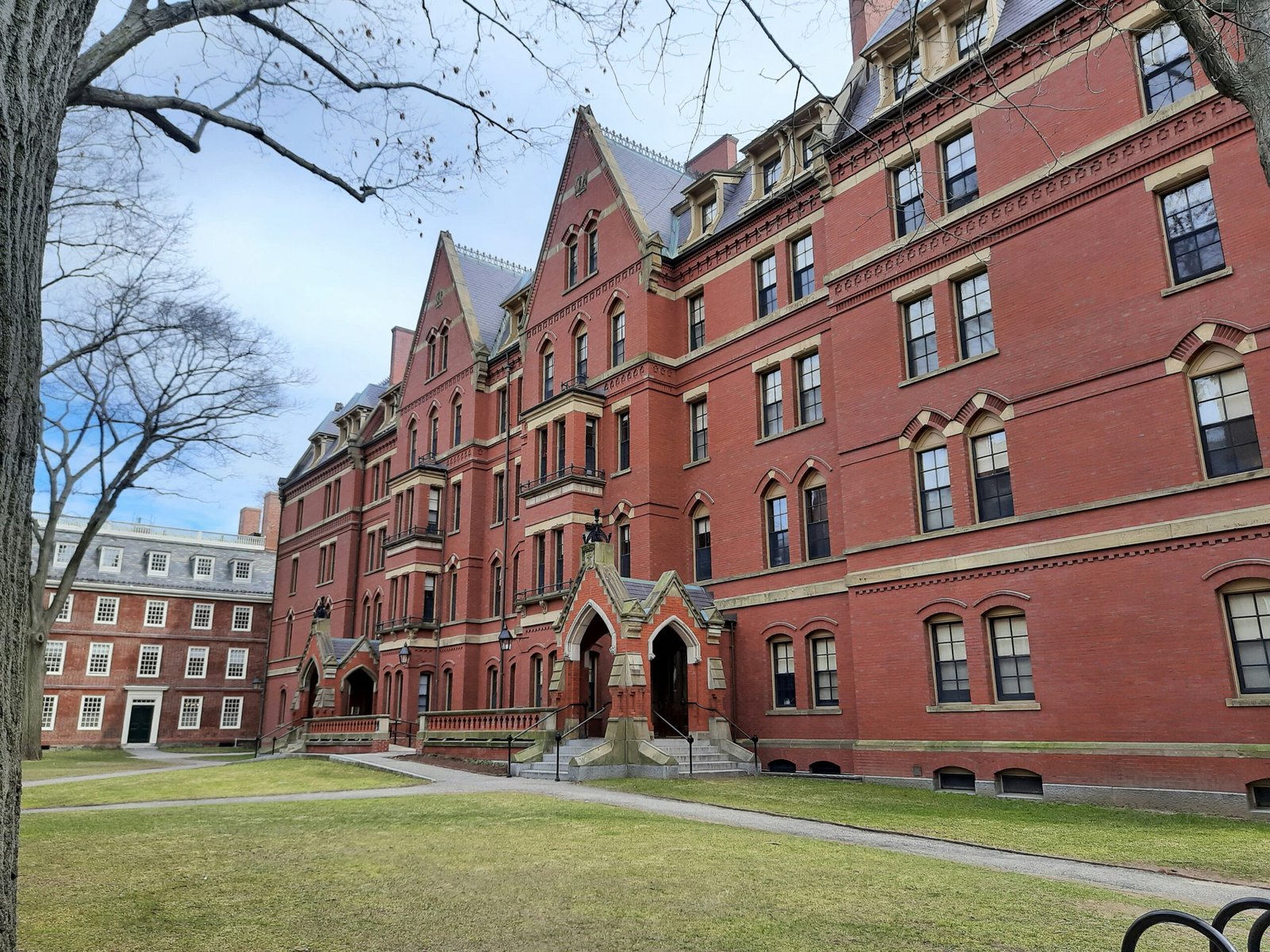
One of the factors contributing to the decrease in Harvard’s applications is the ongoing COVID-19 pandemic. The pandemic has disrupted the education system, forcing schools to switch to remote learning and cancel in-person events such as college fairs and campus tours. Prospective students have been unable to visit campuses and get a firsthand experience of the university’s atmosphere and resources. This lack of personal interaction may have deterred some students from applying to Harvard, as they were unable to fully gauge whether the university would be a good fit for them.
Furthermore, the economic impact of the pandemic cannot be ignored. Many families have faced financial hardships due to job losses and reduced income. The cost of attending Harvard is notoriously high, and the pandemic may have made it even more challenging for students to afford the tuition fees. As a result, some students who may have considered applying to Harvard may have opted for more affordable options.
In addition to the pandemic, the social and political unrest that has swept across the United States in recent years may have also played a role in the decline of Harvard’s applications. The country has been grappling with issues of racial inequality, political polarization, and social justice movements. These events have raised questions about the role and responsibility of educational institutions in addressing these challenges. Some students may have chosen to apply to universities that they perceive as being more actively engaged in these issues, leading to a decrease in applications to Harvard.
Furthermore, Harvard itself has faced its share of controversies in recent years. The university has been embroiled in lawsuits and investigations surrounding admissions practices, with allegations of discrimination and favoritism. These controversies may have tarnished the university’s reputation and deterred some students from applying.
Despite these challenges, Harvard remains a highly esteemed institution with a rich history and a commitment to academic excellence. The slight decrease in applications should not be seen as a reflection of the university’s quality or desirability. Instead, it serves as a reminder of the complex and ever-changing landscape of higher education, where external factors can influence the choices and decisions of prospective students.
In response to these challenges, Harvard University has implemented several initiatives to support prospective students during these uncertain times. One such initiative is the expansion of virtual resources and online platforms to provide students with access to information and guidance throughout the application process. Virtual campus tours, webinars, and online information sessions have become essential tools for students to learn about the university and its offerings.
Additionally, Harvard has made adjustments to its admissions criteria to account for the disruptions caused by the pandemic. The university has recognized that students may have limited opportunities to participate in extracurricular activities or take standardized tests, and as such, they have placed less emphasis on these factors in the admissions process. Instead, Harvard has focused on evaluating students’ resilience, adaptability, and commitment to learning in the face of adversity.
Furthermore, Harvard has taken steps to address the financial concerns of prospective students. The university has increased financial aid packages and introduced new scholarship opportunities to alleviate the burden of tuition costs. By expanding financial aid resources, Harvard aims to ensure that a Harvard education remains accessible to students from diverse socioeconomic backgrounds.
Despite the challenges posed by recent events, Harvard University remains committed to providing a high-quality education and fostering a supportive community for its students. The university understands the importance of adaptability and has taken proactive measures to ensure that the application process remains fair and inclusive. Through these initiatives, Harvard aims to attract a diverse pool of talented students who will contribute to the university’s vibrant academic environment.
A Slight Decrease in Applications
Against this backdrop of historic turmoil, Harvard University has seen a slight decrease in applications. While the exact numbers are not yet available, early reports suggest that the decline is relatively small compared to previous years.
This decrease in applications can be attributed to a variety of factors. Firstly, the challenges posed by the pandemic have forced many students to reconsider their college choices. The uncertainty surrounding the availability of in-person classes, campus life, and extracurricular activities has led some students to opt for alternative options or delay their college plans altogether.
Additionally, the economic impact of the pandemic has made the cost of attending a prestigious university like Harvard even more prohibitive for some students. The financial strain caused by job losses and reduced income has forced families to reassess their financial priorities, potentially leading to a decrease in applications to expensive institutions.
Furthermore, the shift towards online learning has also played a role in the decrease in applications. While Harvard has adapted to the new normal by offering virtual classes and innovative remote learning opportunities, some students may prefer the traditional on-campus experience. The lack of physical interaction and face-to-face engagement may have deterred some prospective applicants from choosing Harvard.
Moreover, the heightened focus on mental health and well-being during the pandemic has prompted students to prioritize their personal growth and self-care. Some students may have decided to take a gap year or explore other non-academic pursuits before committing to a rigorous university program. This shift in priorities could have contributed to the slight decrease in applications.
Despite the slight decrease in applications, it is important to note that Harvard University continues to attract a diverse pool of talented and motivated students from around the world. The institution’s reputation for academic excellence, world-class faculty, and extensive resources remains strong. Harvard’s commitment to providing a transformative educational experience and fostering a vibrant community continues to resonate with aspiring students.
Furthermore, Harvard University has implemented a range of academic support services to ensure that students have access to the resources they need to succeed in their studies. The university has expanded its online learning platforms, providing students with a seamless transition to remote learning. Faculty members have undergone extensive training to deliver high-quality virtual instruction, and additional tutoring and mentoring programs have been established to provide personalized support to students.
Harvard has also prioritized the mental health and well-being of its students during this challenging time. The university has increased the availability of counseling services, offering virtual sessions to students who may be experiencing heightened stress or anxiety. Online support groups and wellness workshops have been introduced to foster a sense of community and provide students with the tools to navigate these uncertain times.
Recognizing the importance of research and innovation, Harvard has continued to invest in its cutting-edge facilities and laboratories. While some research activities may have been temporarily disrupted, the university has implemented strict safety protocols to ensure that essential research can continue in a safe and responsible manner. Additionally, Harvard has expanded its remote research opportunities, allowing students to engage in meaningful research projects from the comfort of their own homes.
Harvard’s commitment to community engagement and public service remains unwavering. Despite the challenges posed by the pandemic, the university has continued to support its community partners and collaborate with local organizations to address pressing societal issues. Students have been encouraged to participate in virtual volunteering initiatives and community-based research projects, furthering Harvard’s mission of creating positive social change.
As the world continues to navigate the uncertainties of the COVID-19 pandemic, Harvard University remains steadfast in its commitment to providing an exceptional educational experience. Through its proactive and adaptive measures, the university is ensuring that students have the support and resources they need to thrive academically, emotionally, and socially. Harvard’s response to these unprecedented times exemplifies its dedication to excellence, inclusivity, and resilience.
Looking ahead, the future of Harvard applications is likely to be shaped by several key factors. One of these factors is the increasing emphasis on diversity and inclusivity in higher education. Harvard, like many other institutions, is committed to creating a diverse student body that reflects the multicultural and global society we live in. This commitment is reflected in the university’s holistic admissions process, which takes into account not only academic achievements but also personal qualities, extracurricular involvement, and life experiences.
Another factor that will influence the future of Harvard applications is the ongoing advancement of technology. With the rise of online learning platforms, virtual classrooms, and remote work opportunities, the traditional college experience is being reimagined. Harvard, being at the forefront of innovation, is likely to continue exploring new ways to deliver education and engage with prospective students. This may include virtual campus tours, interactive online events, and enhanced digital resources to help applicants navigate the admissions process.
Furthermore, the future of Harvard applications will also be shaped by the evolving job market and the changing demands of employers. As industries continue to evolve and new fields emerge, students are seeking educational experiences that not only provide a strong academic foundation but also equip them with the skills and knowledge needed to succeed in the professional world. Harvard, with its renowned faculty and diverse range of academic programs, is well-positioned to meet these evolving demands and attract students who are seeking a competitive edge in their careers.
Additionally, the future of Harvard applications will likely see an increased focus on affordability and accessibility. As the cost of higher education continues to rise, many students and their families are seeking financial aid and scholarship opportunities. Harvard, recognizing the importance of making education accessible to all, has a robust financial aid program that ensures that admitted students can attend the university regardless of their financial circumstances. In the future, we can expect Harvard to continue expanding its efforts to make education more affordable and accessible to a broader range of students.
In conclusion, while the decrease in applications to Harvard may be a temporary phenomenon influenced by recent events, the future of Harvard applications is bright. The university’s commitment to diversity, innovation, and affordability will continue to attract talented students from around the world who are eager to be part of the Harvard community and contribute to its rich legacy of excellence.



